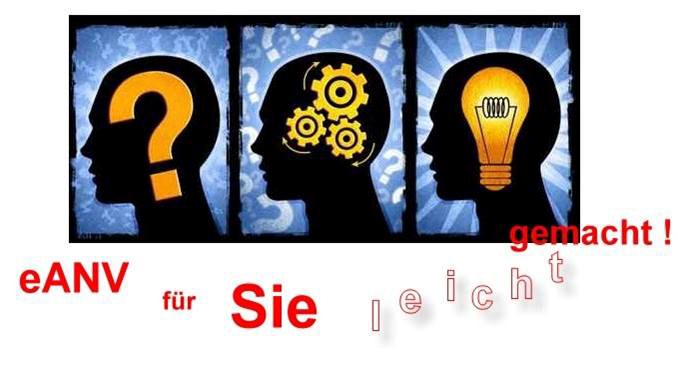Section 7 Warehouse for energy products
Warehouses for energy products within the meaning of this Act are, subject to paragraph 2, establishments where energy products within the meaning of Section 4 are stored under the suspension of tax. The warehouse must serve the purposes of wholesale, wholesale distribution by manufacturers, the blending of energy products, the supply of users with tax-exempt energy products, or the supply of energy products pursuant to Section 2, para. 1, no. 8 (a), para. 2, no. 2 or para. 3.
Persons wishing to store energy products under the suspension of tax require permission. This is granted on application, subject to revocation, to persons from whom there are no doubts regarding their tax-related reliability and who – insofar as they are obliged to do so under the German Commercial Code or the German Fiscal Code – keep proper commercial books and prepare annual financial statements on a timely basis. If there are indications that the tax is at risk, the permission is subject to the provision of a security payment to the amount of the tax value of the energy products expected to be released for free circulation from the warehouse in an average of two months during the year
The permit shall be revoked if one of the requirements according to paragraph 2 sentence 2 is no longer fulfilled, or if a requested security payment is not provided. The permit may be revoked if a security payment that is provided is no longer sufficient.
The warehouse may also be used for the storage of energy products by third parties (storing parties). If the storing party wishes to become a tax debtor according to Section 8, para. 2, sentence 2, he must have been granted a permit first (authorised storing party). This is granted upon application if the storage by the storing party serves wholesale or wholesale distribution by manufacturers, and the storing party distributes the stored energy products in its own name. The permit shall not be granted if the energy products are to be taxed exclusively according to Section 2, para. 1, no. 8 (a), para. 2 no. 2 or para. 3, or are to be withdrawn for tax-exempt purposes. Paragraph 2 sentences 2 and 3 and paragraph 3 shall apply accordingly.
Refer to Section 7 of the German Energy Tax Act (EnergieStG), Warehouses for Energy Products, (buzer.de) (accessed on 6.1.2022)
This aspiration also includes commerce with by-products; these are usually substances that arise in the production process alongside the main product and, provided that they meet the legal requirements, can ideally be put to further use. In the European Union, the key legislation is the Waste Framework Directive (WFD). We use this as the basis for checking the criteria of the by-products. Insofar as we conclude that the reuse potential tends towards zero, i.e. the by-product remains waste and should be disposed of professionally, in this case we also act according to the WFD: “(38) When products, materials and substances become waste, the presence of hazardous substances may* render that waste unsuitable for recycling or the production of secondary raw materials of high quality.”
Applicable law guides good practice during the handling of by-products: Commerce with chemicals is monitored in-house by our expert in according to the German Prohibition of Chemicals Ordinance (ChemVerbotsV). The ChemVerbotsV regulates the restrictions and prohibitions on the distribution and dispensing of specific hazardous substances (dangerous substances) or mixtures – as well as products that may release such hazardous substances.
* may = added by the editor.
Refer to: Directive (EU) 2018/ of the European Parliament and of the Council of 30 May 2018 to amend Directive 2008/98/EC on Waste (europa.eu) (accessed 6.1.2022).
Where the domestic, international and EU legislation on hazardous waste has to be matched, the challenges multiply. That’s no problem for us. It’s what we do for our living.
As the German Federal Environment Agency further explains, the exporter is required to apply for the planned shipment of waste to the competent authority in their home country by means of a notification form and an accompanying form as well as other required documents. Our role – we can take care of it! Incidentally, cross-border shipments of waste are only permitted if the competent authorities at the place of dispatch (exporting country) and at the place of destination (importing country) have given their prior written consent. Authorities responsible for the transport (transit states) must have given, at the least, their tacit consent. It is necessary for the approvals of all the authorities to be collected.
In collaboration with selected partners, we clean tanks and industrial facilities, manage their dismantling, and handle the clearance of storage facilities for hazardous waste as well as decommissioned establishments where there is hazardous waste. We also organise take-back systems for hazardous waste.
Cleanliness is the top priority. Especially when it comes to hazardous waste. Nothing else is acceptable.
Our technical services also include the on-site drainage of industrial wastewater sludge. For commercial and industrial customers in particular, we manage small to medium sized projects for contaminated sites.
It’s about your process, your hazardous waste, your transport of dangerous goods and your specific requirements, which we bring into line with applicable law on a practical basis. If one of our highly qualified employees is appointed by you as an external Dangerous Goods Officer, you can expect the complete service package according to Section 8 of the Dangerous Goods Officer Ordinance (GbV). Our colleague will assist you when it comes to the regulations surrounding the transport of dangerous goods by road, rail, water (sea and inland waterway) and air, and will take responsibility for:
Waste Management Officer (Waste Manager)
If one of our qualified employees is appointed by you as the Waste Management Officer for your company, they will take responsibility for the legally prescribed tasks:
As your Waste Manager, our employee is responsible for the duties and tasks to which they are assigned in relation to your company.
The native handling of the electronic waste records procedure (eANV) is mandatory. And while we’re discussing this topic: With our service packages for the electronic waste records procedure (with different service levels), you can complete your tasks easily via our portal. Vice versa, the invoicing can also take place via your portal. Just as you wish.

Would you like further information? Are you unsure which legal situation concerns you, and do you require a non-binding initial consultation? Do you not know whether and to what extent you are assigned duties and tasks at all?
Then please contact our expert, Patrick Zimmermann. He will certainly be able to help you. On a prompt and unbureaucratic basis.
Tel.: 0621/3221-801, E-Mail: patrick.zimmermann@gvs-ma.de
Elektronisches Abfallnachweisverfahren (eANV)
Ganz einfach und angenehm unbürokratisch: Mit unseren Service-Paketen für das elektronische Abfallnachweisverfahren
können Sie Ihre Aufgaben über unser Portal erledigen.

Sie wünschen weitere Informationen? Gern steht Ihnen unsere Expertin Sabrina Zöckel zur Verfügung.
Tel.: 0621/3221-723
E-Mail: sabrina.zoeckel@gvs-ma.de